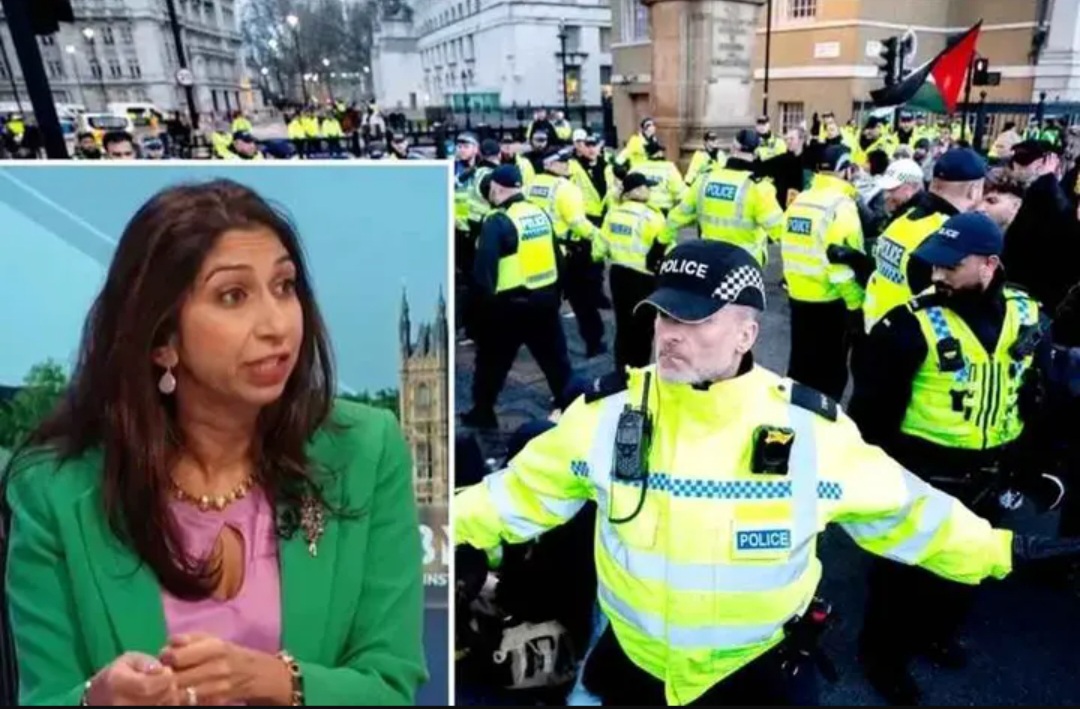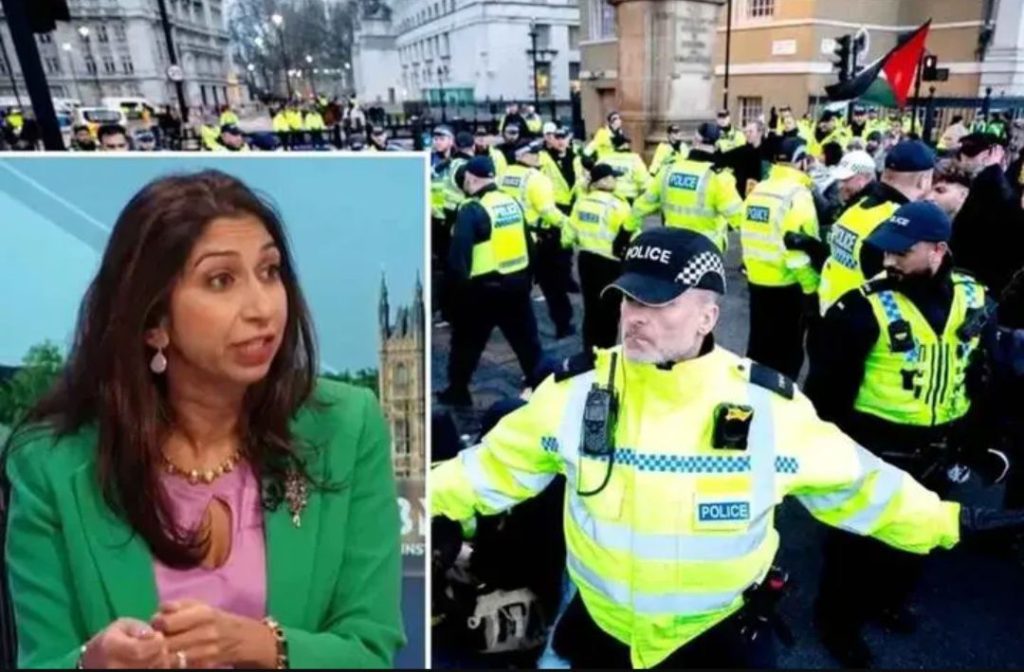
In the wake of escalating tensions following attacks by Hamas, Suella Braverman, a prominent political figure, has demanded urgent action from the UK government to address the surge in extremism. In an exclusive interview with GB News, Braverman emphasized the need for concrete measures to curb hate marches, which she argued have transformed parts of London into “no-go” areas for Jewish people

According to GB News, Braverman’s call for action comes amidst a backdrop of heightened turmoil triggered by the October 7 attacks orchestrated by Hamas, which has been designated a terrorist organization by multiple nations. The attacks not only resulted in significant casualties but also reignited long-standing tensions between Israel and Palestine, leading to a surge in protests and demonstrations across the globe. While acknowledging Prime Minister Rishi Sunak’s condemnation of extremism and calls for responsible protesting, Braverman stressed that mere words are insufficient in addressing the current crisis. She pointed to the disturbing trend of hate-filled marches that have marred the streets of London, noting that these events have not only overwhelmed law enforcement but also contributed to a sharp rise in antisemitism.
According to Braverman, the failure to effectively manage these demonstrations has resulted in certain areas of London becoming unsafe for Jewish residents, a situation she deemed unacceptable in modern-day Britain. She highlighted the urgent need for a robust police response to enforce existing laws and arrest individuals engaging in threatening or abusive behavior during protests. Moreover, Braverman underscored the necessity of empowering policymakers with the authority to restrict marches that incite hatred and division. She called for the introduction of emergency legislation aimed at curbing such activities, emphasizing the importance of swift and decisive action to restore order and protect vulnerable communities.
Braverman’s impassioned plea for emergency measures reflects growing concerns within political circles regarding the proliferation of extremism and its detrimental impact on social cohesion. The recent spate of hate-filled rhetoric and violent confrontations has underscored the urgent need for proactive intervention to safeguard the rights and security of all citizens. In addition to addressing the immediate threat posed by hate marches, Braverman also addressed allegations of Islamophobia leveled against her colleague, Lee Anderson. Denying these accusations, she defended Anderson’s character and criticized the Mayor of London, Sadiq Khan, for purportedly failing to address Islamist extremism effectively.
Braverman’s outspoken stance on these contentious issues underscores the complex challenges facing policymakers in combating extremism while upholding principles of free speech and assembly. The delicate balance between preserving civil liberties and safeguarding public safety remains a pressing concern for governments worldwide grappling with the rise of extremist ideologies. As calls for decisive action grow louder, political leaders must navigate a nuanced and multifaceted landscape, balancing the imperative to protect vulnerable communities with the need to uphold democratic values and principles. The road ahead is fraught with challenges, but with resolute leadership and concerted efforts, it is hoped that meaningful progress can be made in countering extremism and fostering a more inclusive and tolerant society for all.




